Gone fishing - hooked on angling
- Published
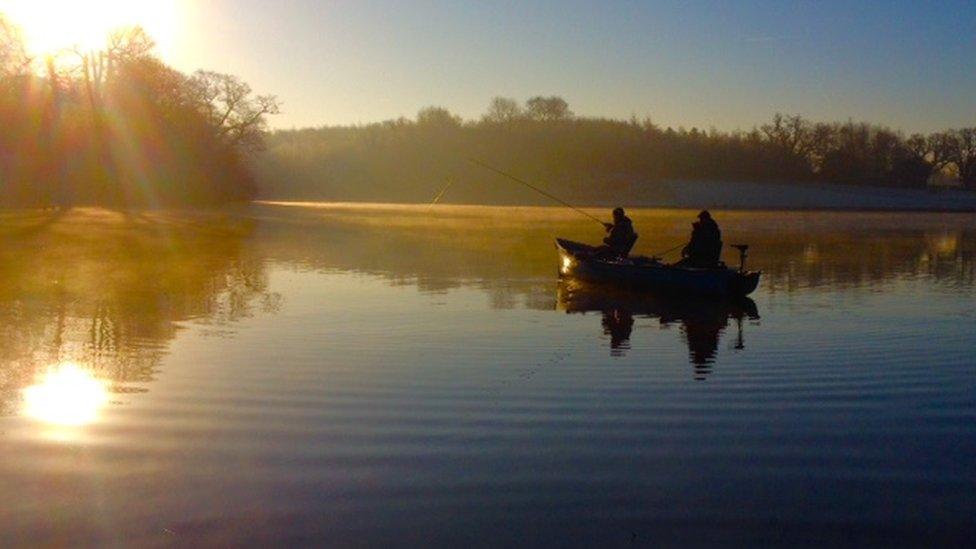
Angling is one of the most popular sports in Northern Ireland
"I started at around aged 10 or 11, along the river with just a simple rod and a worm and I caught fish - and I got hooked.
"You have to experience it first."
Fly fishing coach Enda Fields knows all about the thrill of landing in a big catch and the tantalising mystery of the one that got away.
This summer he has guided a group of teenagers to their second consecutive All-Ireland fly-fishing championship title.
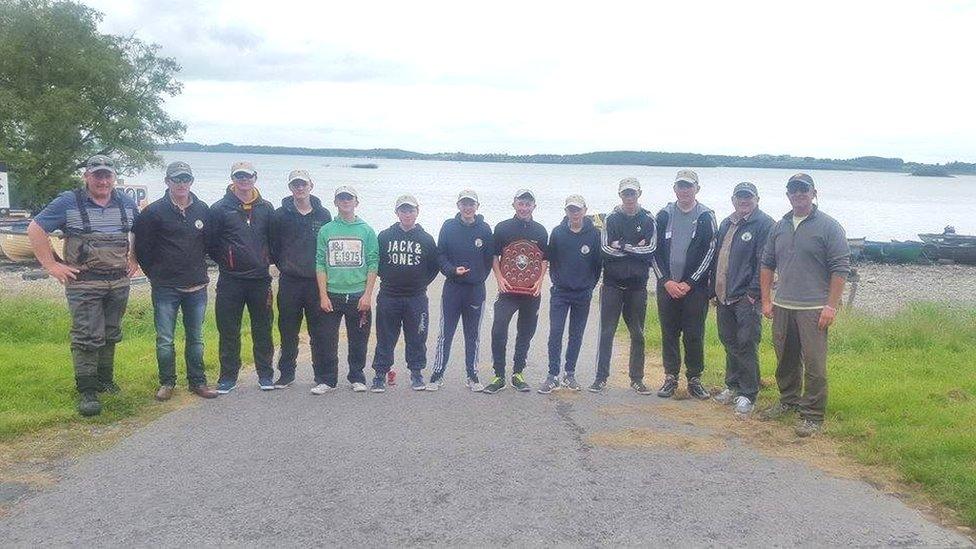
TAFI's award-winning Ulster youth team, with their trophy and coaches
'Very competitive'
Mr Fields is Ulster youth officer with the Trout Anglers' Federation of Ireland (TAFI).
He helped nine boys, aged 14-17, from fishing clubs around Northern Ireland, win the youth division of TAFI's lake fly fishing championships.
Standing patiently at a river bank or beside a lake for hours, sometimes in the cold and rain, may not be every teenager's idea of fun.
But the Ulster team were elated after beating teams from the provinces of Leinster, Munster and Connaught to take home the trophy from this year's competition in Mullingar, County Westmeath.
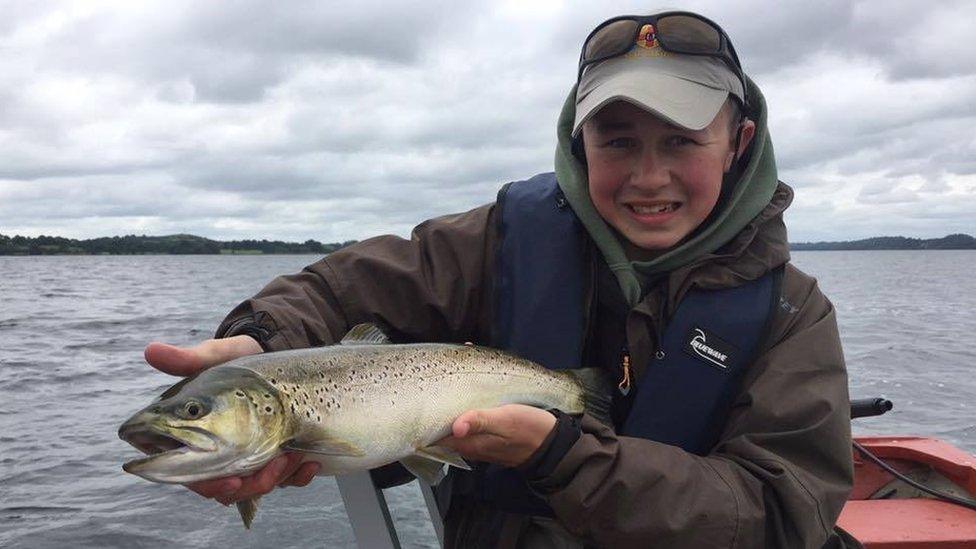
The Ulster team's star performer was 16-year-old Stephen Coulter
"This is very competitive, these young people are at a very high level," Mr Fields says.
"You have to be dedicated. It's all about work ethic. If you want to make a team you have to work hard, you have to go to all the coaching classes."
More than half of the Ulster squad are members of Loughmacrory and Murrins District Angling Association in County Tyrone.
But the team's star performer was 16-year-old Stephen Coulter, from Ballyclare, County Antrim.
He caught the biggest fish of the day in Lough Owel - a wild brown trout measuring about 20ins (50cm).
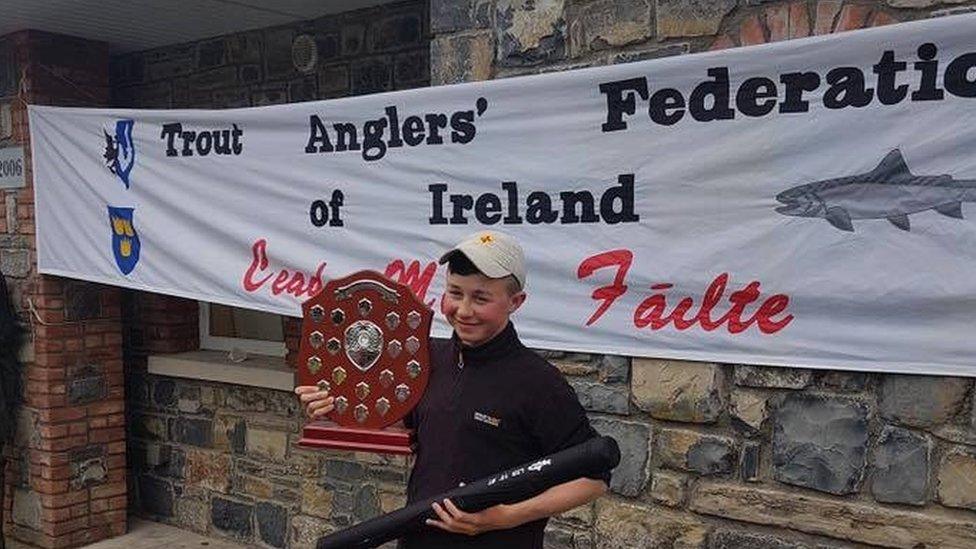
TAFI is one of the smaller cross-border competitive fishing bodies
"It was really, really good," Stephen says.
"I've caught a bigger one outside competition but that's probably the biggest brown trout I've had in competition."
The new 2017 TAFI champion lake angler also started young, having been taught to fish with bait by his uncle when he was just seven years old.
"I'm going to continue and try to compete at a professional level, but I think it will be hard to do.
"It will take time and effort, and ability," Stephen added.
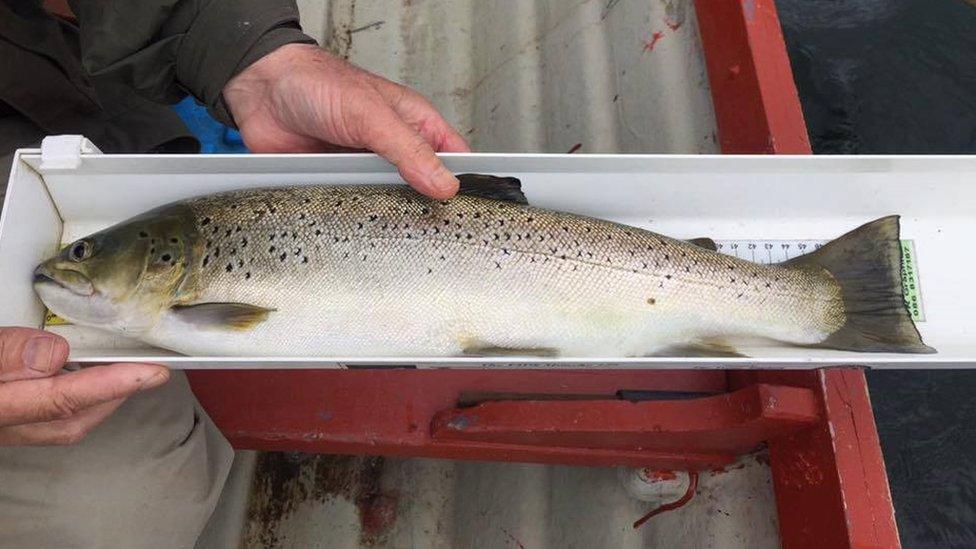
Stephen's fish and others were measured and released back into the water
Any angler over the age of 12 needs a rod licence in Northern Ireland for game fishing and coarse fishing, although sea fishing does not require a licence.
In 2015, Stormont's Department of Agriculture, Environment and Rural Affairs (DAERA) issued more than 25,700 licences to anglers of all ages.
'Health benefits'
Also in 2015 - the most recent year for which figures are available - sales of licences and permits generated more than £550,000.
Permits and licences aimed at senior citizens were among the most popular.
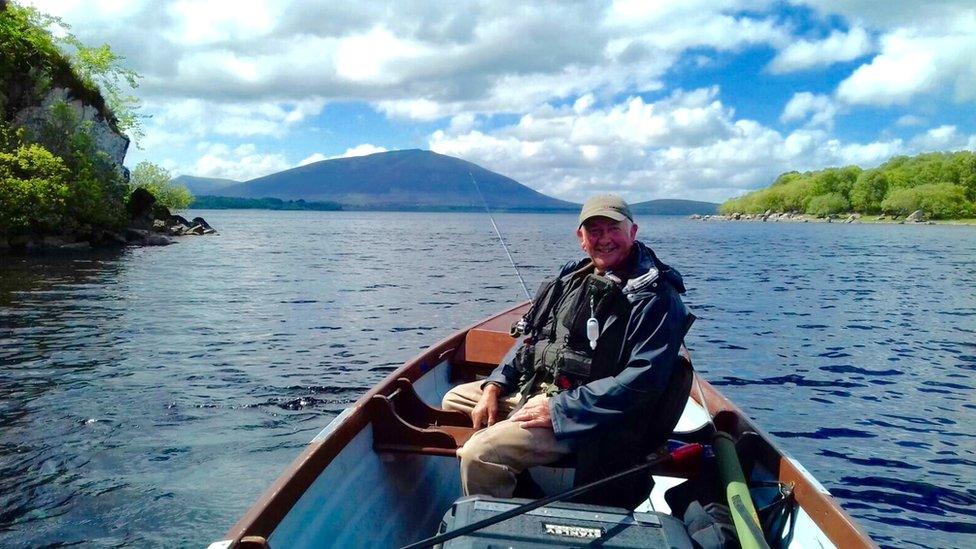
Anglers get to experience some spectacular scenery from unusual vantage points
In total, there are almost 100 angling clubs in Northern Ireland.
The chairman of the Ulster Angling Federation, Jim Haughey, says there is much more to angling than competition.
"For a while, sport development was concentrated on winning medals and people breaking records," he says.
"But because of all the social and health benefits that have been identified through participation in sport by ordinary people, there is a big move among government and sports organisations to increase participation, right across the social strata."
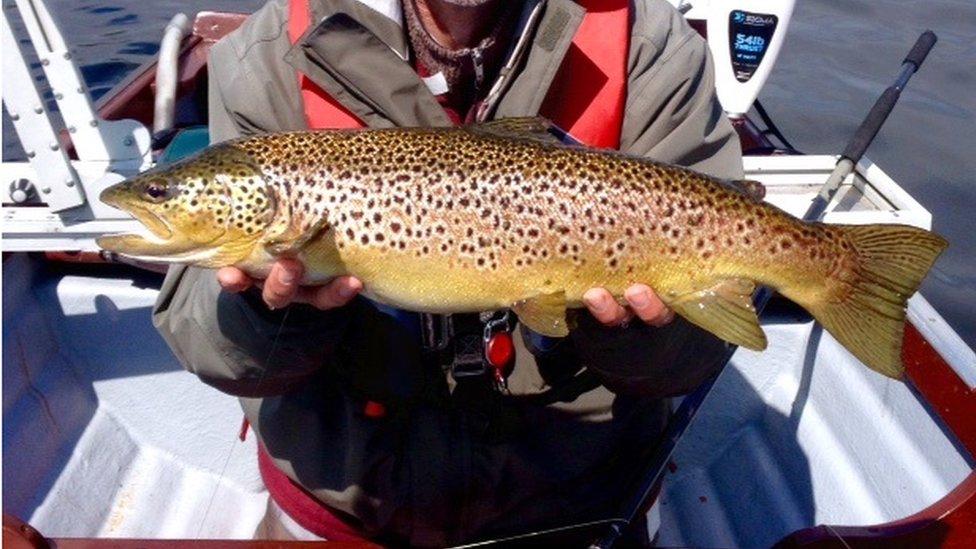
A 2013 report recommended greater promotion of angling's tourism potential
"Just getting out into the fresh air is terrific," the chairman added.
"Anglers see a lot of wildlife and things in the countryside that ordinary people never get to see.
'Invisible'
"For instance, I was in the Six Mile Water river recently and saw kingfishers - very few people would ever see kingfishers.
"Otters, minks, herons - all the wildlife about the rivers the angler will see and he will visit places that ordinary people rarely or never visit."
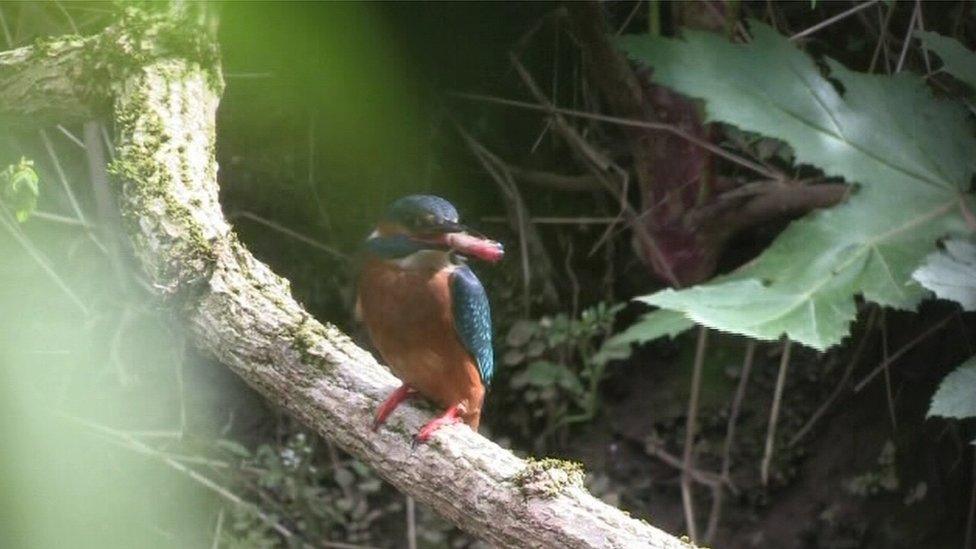
Kingfishers are just some of the more unusual sights along Northern Ireland's waterways
Angling is the seventh most popular sport in Northern Ireland, but it is "largely invisible," according to the most recent strategic review of the activity.
The review was published in 2013, external by a conglomeration of government, sport, tourism and fishing authorities.
It made 33 recommendations to help develop the sport, including improving facilities, promoting its tourism potential and widening participation.
'Positive'
"There had been some shortfalls identified in participation by women and young people in particular, but I think that's common to a lot of sports," Mr Haughey said.
"This major government initiative has brought a great focus on to that and everybody is working very hard."
The chairman added: "There's been a lot of positive development recently and we're very hopeful that will push the sport forward."
As a result of the review, the Ulster Angling Federation employed a new development officer to work directly with clubs to help them attract new members.
Gary Lavery took up his position in March 2015 and since then, he has helped to increase the number of angling coaches from about a dozen to more than 70.
"Whether you're five years old, 55 or 105; whether you're male, female, disabled, it doesn't really matter - angling is for everyone and can be done by everybody," he said.
Part of the development officer's job is to help clubs apply for grants to they can improve their facilities, including providing shelter, toilets and indoor education areas.
"Near water, sometimes it can be dangerous," Mr Lavery said.
He said they are working towards making fishing areas safer for young people and more accessible for anglers with a disability.
They are also developing a new training qualification called the All-Ireland angling skills award.
The programme will help introduce beginners to the sport, and coach them through various levels of competency towards elite or competition level, if desired.